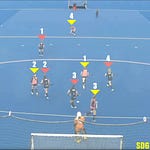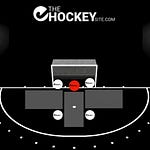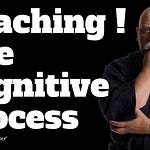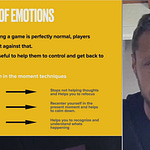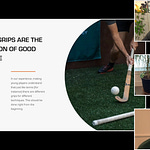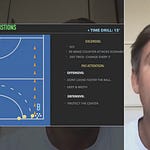This week we’re recapping a masterclass that really hit home for anyone involved in the development pathway of junior field hockey athletes. We were lucky enough to have two heavy hitters from the England and GB set-up join us: Jon Bleby, Head Coach of the Great Britain Elite Development Programme (EDP) and the U21s, and Mark Bateman, Head Coach of the England U18 boys, who also oversees the alignment of talent academies and coach development. No PowerPoint, no video presentations—just a deep, interactive exchange with coaches for coaches.
Developing the Next Generation: Insights from Bleby & Bateman on the GB Junior Men’s Pathway
If you’re coaching within a talent system or just interested to compare how the top nations transition youth into the senior game, this was your episode. Bleby brings a decade+ of experience in the England and GB system, now focused on the 18-23 age band and that crucial jump to senior hockey. Bateman is the go-to for everything U18s and coach education, known for his hands-on approach and practical insights.
The overarching theme? How Jon and Mark collaborate to make England’s and GB’s youth pathway competitive, cohesive, and future-focused—from grassroots to the brink of senior international hockey.
Key Topics and Takeaways
Role Clarity & Collaboration:
Jon and Mark detailed how they actively bridge the U18 and U21 levels, ensuring seamless athlete transition and program alignment—a shift from “each age group in their own bubble” to a holistic, interconnected journey.The Consistency Challenge:
A big focus was consistency—not only in skill execution but in behaviors and off-field habits. Whether planning a week, personal S&C, or meeting the technical standards for progression, both coaches emphasized the impact of these basics.The Influence of Multi-Environment Athlete Experiences:
If you’ve ever envied the Belgian or Dutch club-centric systems, you’ll relate. England’s hockey ecosystem is a mash-up: school, university, and club—all pulling in different directions. This variety enriches the player, but can create confusion and inconsistency. Bateman’s job? Providing clarity amid the noise.Individual Development Plans (IDPs):
There was a lot of practical talk about using IDPs to anchor growth. Players own their plans, regularly share progress, and balance super strengths with areas for growth. This isn’t just a tick-box—they’re a continual dialogue between player, coach, and (sometimes) their wider support network.Mindset vs Skill Dilemma in Selection:
That classic conundrum—who gets picked, the super-skilled maverick or the relentless competitor? Both coaches agreed: you need a bit of both, and it’s rarely a straight “either/or.” Context matters, as does potential to develop the weaker side.Preparing Athletes for Senior Trends:
Tactical evolution (deep zones, aerial threats, etc.) at the senior level is mirrored in their junior priorities. They make sure junior internationals are exposed to current global trends so the “step up” isn’t a culture shock.Importance of Learning to Win:
Not just development for development’s sake—a real focus in recent years is on learning to win. Semi-finals, finals, high-pressure moments: they want junior internationals used to these scenarios.The Realities (and Opportunities) of Open Pathways:
Both coaches articulated a commitment to open doors. The pathway isn’t a one-shot deal: miss out at U18? There’s still a route to the EDP or U21s via clubs, wildcards, and ongoing monitoring.Challenges—and Opportunities—of Club vs University vs Central Structures:
Despite top universities offering world-class facilities, the step up in quality and experience you get at certain clubs (notably mixing with seasoned internationals) is still a work-in-progress. Blending both is a continuous balancing act.Self-Reflection and Coach Development:
Both Jon and Mark reflected on their personal growth as coaches—about owning your style, seeking critical feedback, and never waiting for the formal structure to hand you the next step. Mark’s advice? Be a “scholar of the game.”
Jon Bleby dropped a classic:
“The best players have the best basics.”
It’s not about the flash—it’s about repeatability under pressure at any level.
A Few Lessons, Quickly Summed
No substitute for basics—on or off the field.
Mindset and skill have to co-exist.
The pathway is open and nuanced—late bloomers aren’t ignored.
Aligning environments is key, even when structures are “messier” than on the continent.
Coach your way; don’t be a clone.
Stay current, both tactically and in your own learning.
Catch the Full Session On Demand
There’s so much more—including strategies for starting a youth program in “non-structured” hockey countries, dealing with Gen Z players (put the phones away at meals, folks), and lessons borrowed from other sports. If any of this has you nodding your head or furiously scribbling notes, do yourself a favor and watch the full session on demand. It’s a free for all session!
I hope you enjoy this exchange between hockey coaches…








